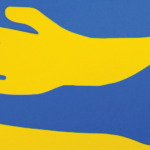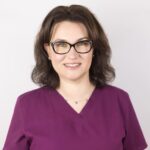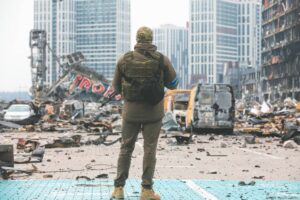 In the early days of summer, soon after U.S. doctors arrived in Ukraine on a medical mission, explosions shattered the quiet of the night. Some members of the team heard it; others slept through it—tired from the long journey into Lviv. The war with Russia has passed the one-year mark, and Ukraine perseveres.
In the early days of summer, soon after U.S. doctors arrived in Ukraine on a medical mission, explosions shattered the quiet of the night. Some members of the team heard it; others slept through it—tired from the long journey into Lviv. The war with Russia has passed the one-year mark, and Ukraine perseveres.
Echoes of War & City Life
The explosions, apparently resulting from a drone attack elsewhere in the city, hint at the proximity to danger the visiting doctors experienced during their mission. They also reflect the threat many Ukrainians face daily in a country at war.
Yet life goes on, with people coming and going to work or gathering in the public square, where a concert brings moments of joy and normalcy to city residents and visitors. Sadness looms in a nearby cemetery, with the frequent burials of individuals lost to the war—life and death in juxtaposition.
“It’s really hard to see the families suffering,” says Paula Rackoff, MD, a rheumatologist and clinical associate professor at NYU Grossman School of Medicine, New York. Dr. Rackoff led the most recent mission, sponsored by Israeli aid organization One Heart, on her third visit to the region since Russia invaded Ukraine in February 2022.
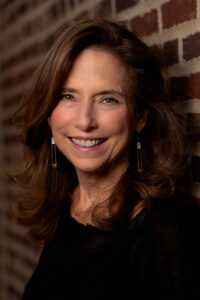
Dr. Rackoff
“For me, it’s different from the first two times I came, which was a year ago, mostly because so many people have died,” says Dr. Rackoff. “We went to the cemetery today, and there were a little over 400 men buried.”
Patients and healthcare workers met Dr. Rackoff and members of the medical mission team with a warm welcome and appreciation for their efforts. About 200 patients were seen during the 10-day mission.
“People are both grateful and surprised that doctors—and we have non-doctors also—but that doctors have come all this way here to help,” says Dr. Rackoff.
Yes, the members of the mission heard the scary sounds of war, but they felt relatively safe in Lviv, far from the front lines where violent battles rage. At the end of one workday three members of the mission sat in a hotel bar and shared stories about their experiences and impressions of a dynamic city that reflects the Ukrainian character.
Mission, Drugs, Medical Supplies
Rheumatologists with this mission provide medical treatment how and where it’s needed, says Michael Pillinger, MD, a rheumatologist at NYU Langone, New York, who joined Dr. Rackoff for this year’s visit to the region.
“We pack up our backpacks with our medical kits,” says Dr. Pillinger. “We take whatever medications we have and whatever translators we have in our group,” and see patients.
They don’t treat emergency needs, such as wounds from military missile blasts. Instead, they see patients who have chronic conditions and other illnesses, at times calling on lessons learned in medical school to offer care not necessarily related to their specialty, notes Dr. Pillinger.
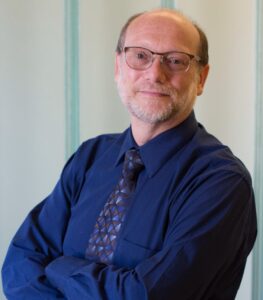
Dr. Pillinger
The team arrived with medical supplies and medications donated by NYU Langone Medical Center. But doctors still have serious shortages in supplies of biologics, says Dr. Rackoff.
“We’re doing our best with the medications we brought in giant orange duffle bags,” adds Dr. Pillinger.
More rheumatologic medicines are needed, especially to treat rheumatoid arthritis and psoriatic arthritis. Dr Rackoff says she would love to see pharmaceutical companies on board to deliver more donated medicines to Ukrainian cities where they are badly needed.
Most of those drugs are approved for use in Ukraine, notes Dr. Rackoff, “but being approved doesn’t mean the people have access, especially access during times of war.”
Before the Russian invasion, local government programs partially funded medications for rheumatic conditions but the war changed that, says Marta Dzhus, MD, PhD, professor of rheumatology at Bogomolets National Medical University, Kyiv, Ukraine, who met with Dr. Rackoff and her group. “It is very difficult for our patients to pay for biologic medicines,” says Dr. Dzhus.
Dr. Pillinger encourages doctors to consider volunteering and says “there’s a place for us rheumatologists,” as well as other internists, to help patients displaced by the war. Many have minor medical needs but have been driven out of their homes in cities and towns under military attack.
“We’re taking care of a group of people who know they need to get on with life and need care,” says Dr. Pillinger. “They’re extraordinarily grateful, which is a wonderful thing.”
Castle of Help & Hope
Poland continues to help refugees who began fleeing Ukraine when the war began. The generosity of spirit that prompted Polish citizens to open their homes to Ukrainians once they crossed the border can be seen in individuals who continue to do what they can to help, notes Dr. Pillinger.
The team met a woman who created a center for displaced families in a castle in declining condition near the Polish city of Krakow. She took the lead to find shelter for a group of people who had nowhere to go. She is an extraordinary woman, says Dr. Pillinger: “She’s been there since the beginning, every day.”
Mix of Emotions
In Lviv, death’s reality is driven home by funerals, people visiting grave sites and moments of silence to honor the fallen heroes. Yet members of the visiting medical team also recount that Ukrainians show signs of resilience throughout the still vibrant and cosmopolitan city.
“We’re sitting in Lviv right now and it’s a really alive city,” says Dr. Pillinger, a place where people live free, work and attend school and university.
“It’s kind of extraordinary and yet it’s all in this background of what they understand is happening in the east [of Ukraine] and what’s happening to their own citizens,” says Dr. Pillinger.
People of Lviv have experienced great loss, notes Dr. Pillinger, including the young men who led their team around the city. One 25-year-old man told the group that six of his friends have died since fighting began early last year.
“Yet they remain positive,” says Dr. Pillinger. “We’re all wearing these rubber bracelets given to us by the mayor we met, and they say ‘Unbroken’” on them.

Bracelets presented to members of the medical mission by the mayor of Lviv.
Lviv’s mayor welcomed the group with a city tour that offered an insider’s survey of where help is still needed and a glimpse of hope for life without war. The experience impressed Yonatan Najman-Licht, a premed student from Brown University, Providence, R.I., and mission volunteer, by showing how Lviv’s mayor stays focused on the future.
“He’s really taking an opportunity to try to build this city up to survive the war and prepare for what life is going to be like after the war is over,” says Mr. Najman-Licht. “He started building this incredible hospital system and trauma system.”
In addition, a rehabilitation center was opened to help people who have lost limbs in the war learn to use prosthetics fabricated at a nearby site.
“They’re using these amazing facilities and therapists to help people get back on track and start walking,” says Mr. Najman-Licht. “We were able to get a tour and it’s really incredible how quickly they built that.”
One day Mr. Najman-Licht accompanied a visiting surgeon from Israel during patient consultations. A man in his 50s had been injured about a year ago when his house collapsed on top of him. “He had gone through the medical system in the east of the country and eventually came over here with an infection in his skull,” says Mr. Najman-Licht. “He also had an infection in his sinuses, hepatitis C and a lot of trauma damage at the front of his head.”
The surgery lasted three to four hours, and the patient was thankful to the visiting surgeon who delivered his care, says Mr. Najman-Licht.
“Because it’s war time, I was able to be in the OR [operating room] and up close to see the surgery, which was really an incredible experience that I don’t know I would have gotten otherwise,” says Mr. Najman-Licht. “I was able to see him and the Ukrainian surgeon, as well, perform the surgery, from start to finish.
“It was really an amazing thing to see and hopefully the patient continues to get better and all is okay.”
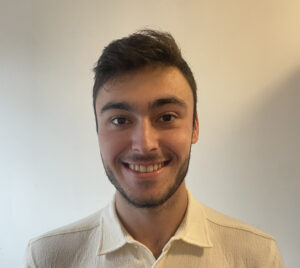
Mr. Najman-Licht
Helping Hand from Holocaust Scholar
A Holocaust scholar, who is Dr. Rackoff’s patient back home, gave the rheumatologist money to help patients she encountered during the medical mission.
“She gave me a $100 bill and 10 fives to give out, and she doesn’t want to know who it went to,” says Dr. Rackoff.
Dr. Rackoff met a woman in her 50s seeking seizure medicine for her 13-year-old son who has schizophrenia and epilepsy. There was no seizure medicine, so Dr. Rackoff gave her the $100. The money would allow the woman to go to a pharmacy and buy her son at least one month of seizure medicines. An interpreter explained that it had been donated by a professor of Holocaust studies, but the woman didn’t know about the Holocaust, says Dr. Rackoff.
“It never dawned on me that one of the benefits—if I can call it that—of coming here is to really help people recognize the history that they not only don’t know but is being repeated,” says Dr. Rackoff.
“It also opened my eyes how big and small the world can be.”
Mission Possible
Dr. Pillinger and Mr. Najman-Licht say they are grateful that Dr. Rackoff encouraged them to join the mission, which numbered about 20 volunteers, mostly from the U.S.
“It’s a really beautiful thing to see all these different people with different backgrounds coming for the same reason and the same goal,” says Mr. Najman-Licht, “to help other people, even if it’s in the most minute way.”
Dr. Rackoff credits NYU Langone for making the mission possible.
“None of this could have happened without NYU saying yes,” says Dr. Rackoff. “So I feel very grateful for that.”
Dr. Rackoff enjoyed meeting three Ukrainian rheumatologists, two from Kyiv, the country’s capital. The third is from Sumy, Ukraine, about 30 km from Russia’s border.
“She sleeps in her shelter every night, and she has a 3-year-old daughter,” says Dr. Rackoff. “She could not have been calmer and more enthusiastic about being a rheumatologist.”
Now vs. Then: History of Antisemitism
Noting a history of antisemitism in Ukraine, Dr. Pillinger describes it as a complicated country that his Ukrainian mother-in-law, now 92, remembers as once inhospitable to Jews.
“My grandparents fled this part of the world because of antisemitism, and my wife’s parents were Holocaust survivors from the same region,” Dr. Pillinger writes in an email. “So to see the Ukrainians trying to create something better is inspiring—and to see the Russians trying to crush it is dispiriting.”
His wife, Judy Pillinger, a psychotherapist, was 11 when she and her family left the country. She also joined the mission and provided psychological support to both adult and child refugees.
Dr. Rackoff feels optimistic about the present Ukraine and its people. “It’s a different generation,” she says. “My great-grandparents left Ukraine because of antisemitism and, most likely, neighbors not willing to help.
“It’s simply my turn to show up and help my neighbors from afar.”
Rheumatologists living in Ukraine press on with their work of treating patients despite the ongoing war that began with a Russian military invasion. Learn more on our website.
Resolve & Optimism
Seeing and hearing stories, both sad and uplifting, left a lasting impression on members of the mission, they say.
Like the bracelets given to them by Lviv’s mayor, they take with them memories of Ukrainians who greeted them with warmth and displayed unbroken courage to carry on in the face of war.
“It’s got to get to you day to day that we’re very privileged people,” says Dr. Pillinger. “We’ll go home to our safe lives, but the Ukrainians are home; they’re living this.”
Catherine Kolonko is a medical writer based in Oregon.
